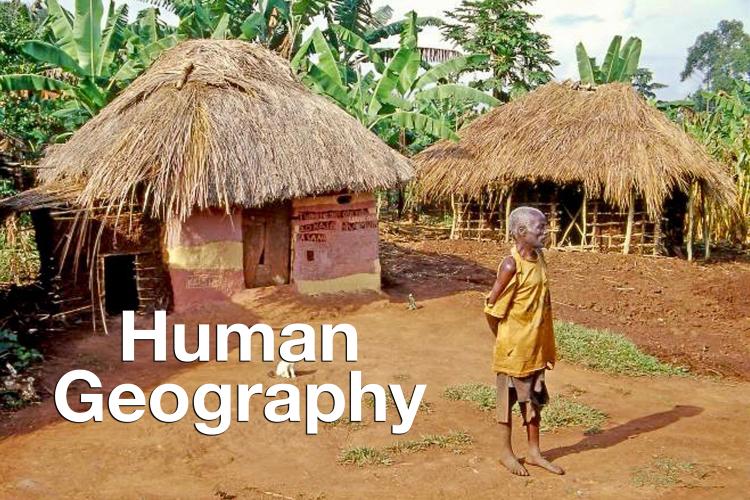Human Geography
 Population, political, urban, social, and cultural geography
Population, political, urban, social, and cultural geography
Human geography first and foremost involves the study of human beings--more specifically, of the organization of human activity and of spatial patterns as they affect and, in turn, respond to the world about us. The processes under study derive from distinct, but interactive, substructures: pursuit of livelihood (economic), social interaction (socio-political), and historical inertia and meaning (cultural). The products are change, conflict, diffusion, differentiation, and repetition in the human organization of the land. These same human processes will interact with biophysical processes, (e.g., air quality or plant introductions) to shape humanized landscapes and regional character. Human geographers typically investigate problems associated with locational strategies and human decisions. Such problems cut through subjects as diverse as analysis of regional markets, racial segregation in cities, migration flows, hazardous sites, international development, medieval landscape patterns, or formulation of impact statements.

